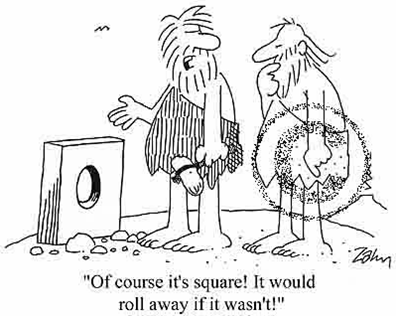Difference between revisions of "Back to reality"
| Line 2: | Line 2: | ||
<br><br> | <br><br> | ||
'''Open network, limited human borders.'''<br><br> | '''Open network, limited human borders.'''<br><br> | ||
[[Image:Never_ready.png]] | |||
2010: The increasing availability of networks with high quality and high speed has changed our lives and will change our lives more and more. This availability means that it is very inexpensive and everyone is indeed connected all the time. Living on-line is becoming reality very fast. Gaining information is very easy and also entertainment through internet is coming into our lives in various kinds. Communication between people will increase whether by phone, by mail, by chatting, by SMS and various other kinds. Where should this end? Until what level can we handle this? Is this the life we want? These questions will become more and more important. <br><br> | 2010: The increasing availability of networks with high quality and high speed has changed our lives and will change our lives more and more. This availability means that it is very inexpensive and everyone is indeed connected all the time. Living on-line is becoming reality very fast. Gaining information is very easy and also entertainment through internet is coming into our lives in various kinds. Communication between people will increase whether by phone, by mail, by chatting, by SMS and various other kinds. Where should this end? Until what level can we handle this? Is this the life we want? These questions will become more and more important. <br><br> | ||
Revision as of 14:44, 12 December 2005
Opposition, Unadoption, Social reaction scenario
Open network, limited human borders.
2010: The increasing availability of networks with high quality and high speed has changed our lives and will change our lives more and more. This availability means that it is very inexpensive and everyone is indeed connected all the time. Living on-line is becoming reality very fast. Gaining information is very easy and also entertainment through internet is coming into our lives in various kinds. Communication between people will increase whether by phone, by mail, by chatting, by SMS and various other kinds. Where should this end? Until what level can we handle this? Is this the life we want? These questions will become more and more important.
2010 – 2015: The broad awareness that this “living” does not satisfy all our needs in communication is increasing. And although the quality of information and “virtual realities” is increasing very fast, it is still artificial. It is not as real as to speak and communicate with people directly. As we know ninety percent of communication goes through non-verbal communication and by “body language”. People are becoming aware that living on-line does not enrich their lives and they are rejecting this artificial living more and more. They are going to stick more and more to the former ways of communicating, meeting each other in public events, restaurants, pubs etc. Social live as it used to be becomes more popular.
The rejection of this artificial way of living is also a movement and a need to find rest again in our lives. With the availability of open networks, the amount of information we have to deal with, is overwhelming. Live speeds up and we won’t get any rest in our daily lives. The appreciation of the quality of live will increase strongly. This involves other kinds of communication and other kinds of living than the “on-line life”. The readiness to adapt all the possibilities is halted because our understanding of life refuses to change. Maybe humanity is not ready for this way of living yet.
Economical impact
The economical impact can be compared to the burst of the internet bubble. Huge amounts of capital invested in new technologies are loosing their value. A global recession will be unavoidable. The hunger for new technologies is aleviated which means that the driving force for our global economy is fading away. Since the movement of rejection new technologies will first appear in the western world the economical power in the world will shift to developing countries. The large differences between rich and poor countries will decrease.
Political impact
The globalisation will slow down and together with that the political issues will become more local than global. The political power in the world will not be concentrated on the superpowers in the world like the G8 of 2005. Political power will be normalised again.
Technological impact
The technological evolution is slowed down because the driving force- the hunger for technological improvement- has aleviated. The rejection to technology is strongly linked to the ethical issues related to biotechnology, nanotechnology and other technologies to change all kind of life in our biosphyre. All this possibilities are not longer wanted.
Social impact
Quality of life is becoming more important. This also means a “social” life as it used to be. Society will change drasticaly. The speed of life will slow down or at least be halted. Social contacts between people will increase which enrich our lifes and hapiness on a other way than the financial drive did before.
Ecological
Directly linked with technological improvement are two movements:
Energy consumption will increase because of a higher demand caused by “welfare” in the years before 2005. This will cause a more polluted environment. If technological improvement slows down and quality of life in an other way will become more important the increasing demand of energy will slow down.
Energy production can become more and more environmental friendly because of technological improvements. Solar, wind and hydrogen energy production needs constant technological improvements. If this will be slowed down the environment will become more polluted.
